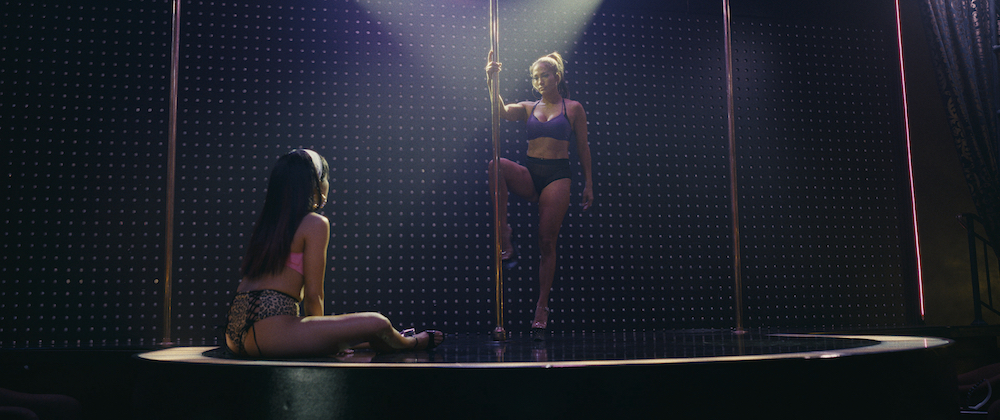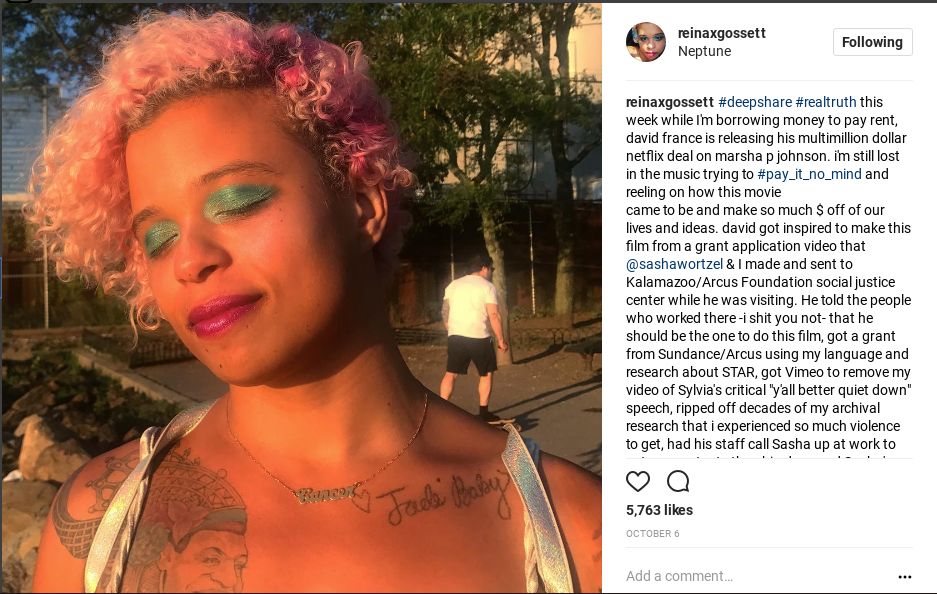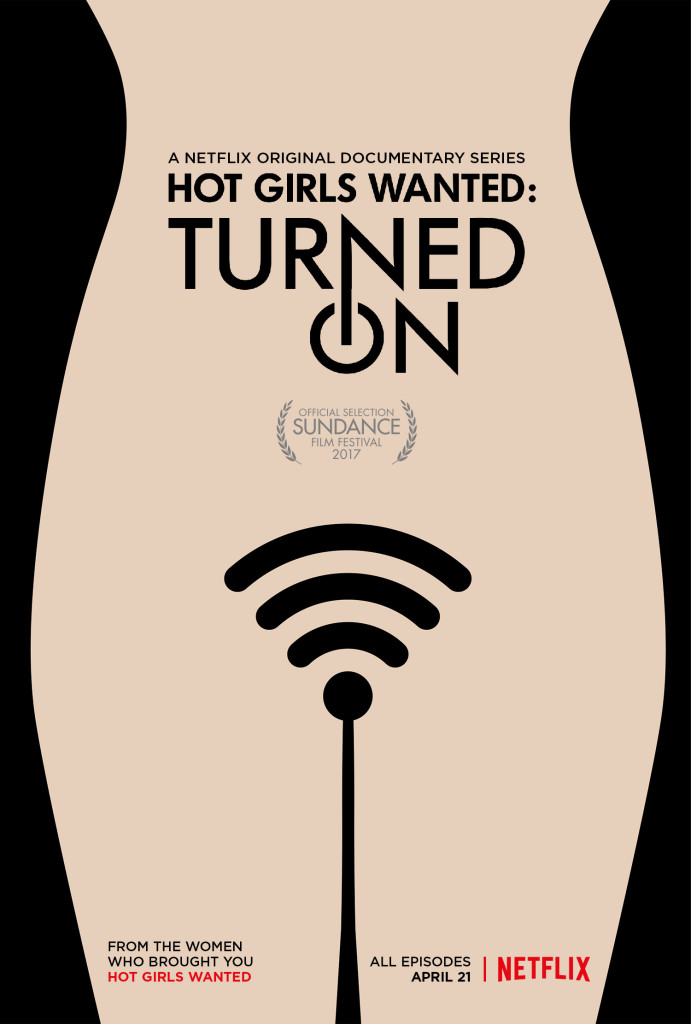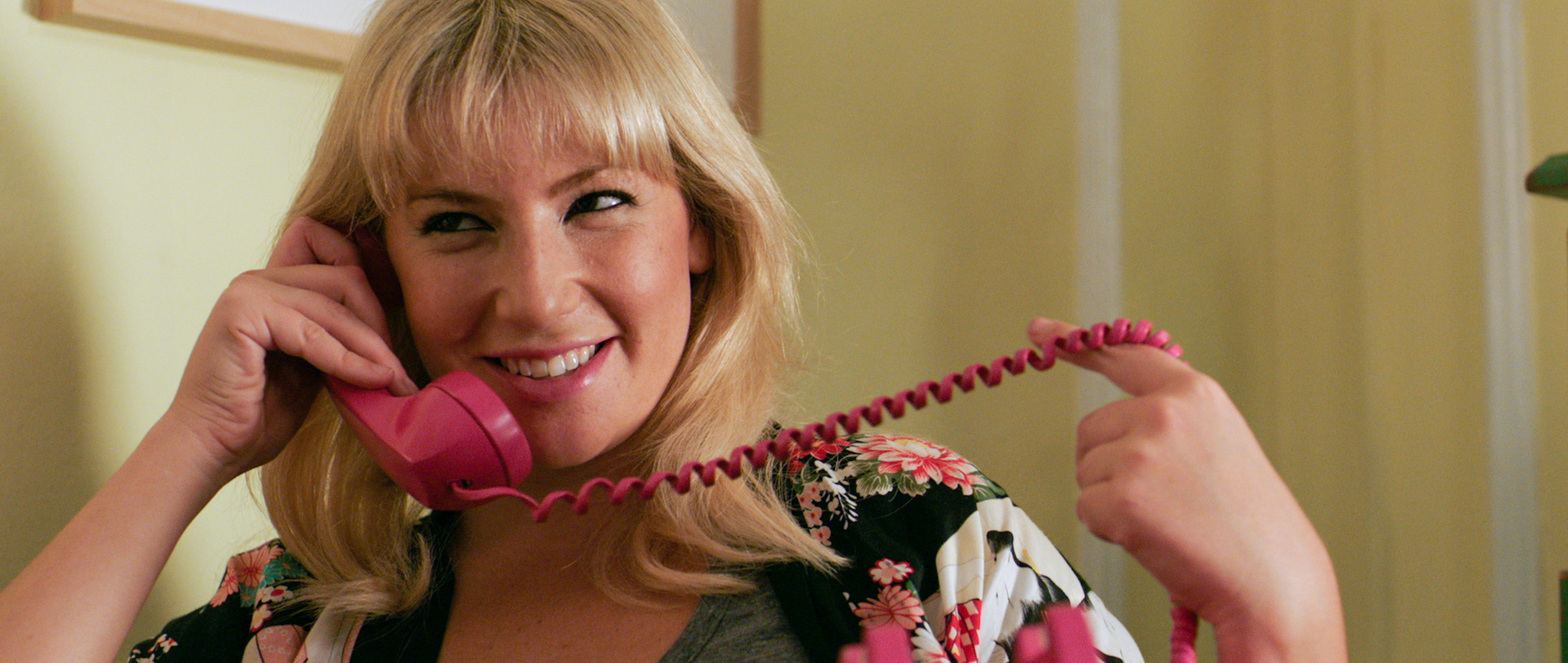It’s been 24 years since Elizabeth Berkley licked the pole in Showgirls and I’m still mad about it, so I understand the mixture of anticipation and dread with which strippers await Hustlers. What stupid misconceptions will it leave the audience with? How many years will it be the general public’s touchstone for what we do?… Continue reading Hustlers (2019)
Category: Movies
Whitewashed And Stole: Marsha P. Johnson, Reina Gossett, and David France
On Friday, October 6th, I settled in for a night of Netflix. But this night of Netflix would be epic, because Netflix had just released the documentary The Death and Life of Marsha P. Johnson, directed by David France. The film follows the investigation into pioneering sex working black trans activist Marsha P. Johnson’s 1992… Continue reading Whitewashed And Stole: Marsha P. Johnson, Reina Gossett, and David France
Gia Paige After Hot Girls Wanted: Turned On
In a recent interview with Rolling Stone, Hot Girls Wanted: Turned On producer Rashida Jones reflected on the mistakes that were made with the original documentary: “I think that many people within the industry felt like the movie marginalized and further stigmatized sex work, which was not our intention at all.” It’s perplexing to reckon… Continue reading Gia Paige After Hot Girls Wanted: Turned On
I’m Not So Sure About That Rough Night Trailer
By now, you are probably aware of Rough Night and the animated and practiced (if not exhausted and slightly jaded because this happens all the f*cking time) reaction to it from the sex worker online community. But if not, here’s a quick recap: on March 8th Paulilu Productions released the trailer for their latest summer… Continue reading I’m Not So Sure About That Rough Night Trailer
For A Good Time Call (2012)
There aren’t many films about phone sex that are worth anyone’s time—notable exceptions being the excellent short film Sumi, the brief, funny phone sex segments of Tamra Davis’s 90’s hip hop spoof CB4, and about three-fourths of Spike Lee’s kind-of classic Girl 6. Despite its truly troublesome flaws, I have a soft spot for Girl… Continue reading For A Good Time Call (2012)




